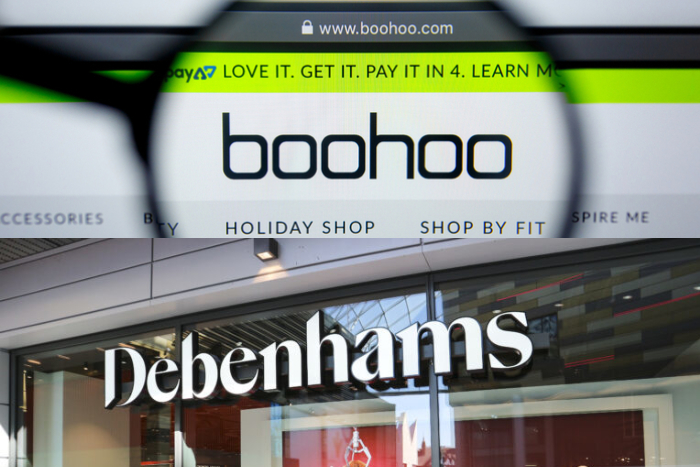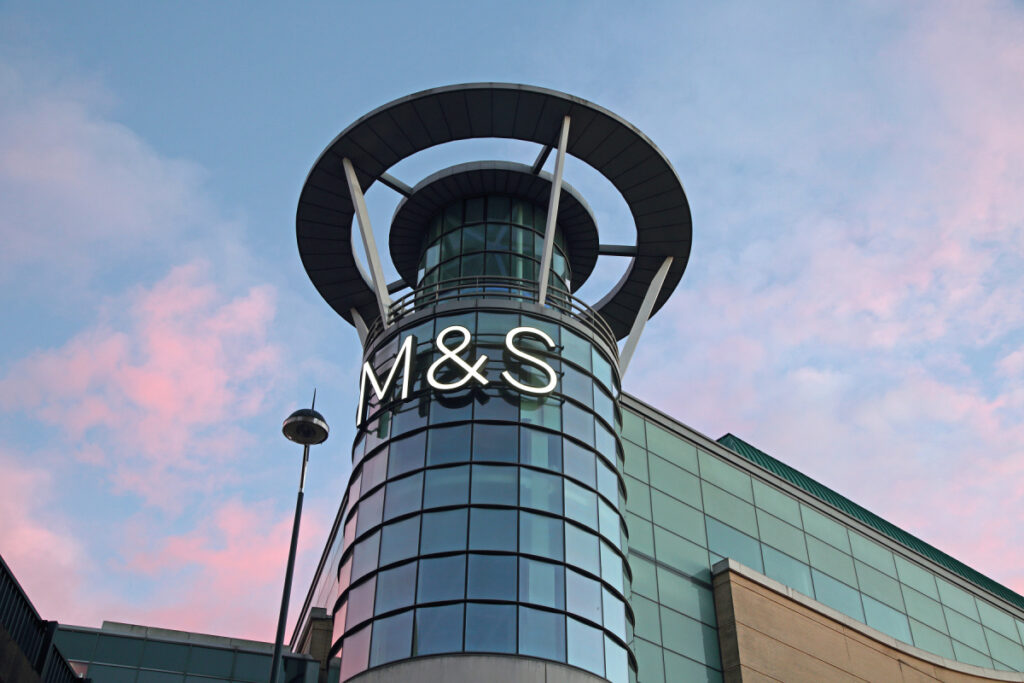The UK retail industry is no doubt changing. Just a decade ago, no one would have predicted that an established department store such as Debenhams would be acquired by an online fast fashion retailer – let alone disappear from the high street completely.
That is exactly what happened on Monday. Boohoo Group bought Debenhams out of administration for £55 million. The deal only includes the department store’s brand assets, ecommerce and website operations, and all own-label products across beauty and fashion.
This means the remaining 118 stores of Debenhams, which went into liquidation less than two months ago, would permanently shut down, effectively making at least 10,000 staff out of work.
Boohoo Group, which owns PrettyLittleThing, Nasty Gal, MissPap and Boohoo itself, said the deal was a huge step in its ambitions to create the UK’s largest marketplace.
In recent years, the online retail giant has garnered a reputation for acquiring a bunch of well-known high street retailers out of administration and turning them into online-only operations – just as it did with Karen Millen and Coast in 2019, and Oasis and Warehouse last year. Boohoo Group has also been linked with the bidding process for Arcadia Group’s flagship brand Topshop.

Geoff Rowley, Debenhams’ joint administrator from FRP Advisory, described the deal with Boohoo as “creating the opportunity for a new Debenhams-branded business to emerge in a different shape beyond the pandemic”.
Boohoo’s acquisition will see it take ownership of Debenhams’ ecommerce operations and own-label products from around the start of its next financial year in March. It’s thought that Debenhams’ website and branding would also be rebuilt and relaunched on Boohoo’s platforms in the near future.
Nonetheless, the deal allows enough time for administrators to continue running closing down sales across Debenhams’ remaining 118 shops once they are allowed to reopen after the current Covid-19 lockdown restrictions are lifted across the UK.

Yet just a mere few hours after the Boohoo deal was announced on Monday morning, Debenhams was given a winding-up order by Judge Daniel Schaffer at a hearing in the Insolvency and Companies Court.
With all of Debenhams stores closing down permanently as part of the liquidation process, it is unlikely many of the remaining jobs are likely to be saved – with estimates ranging between 10,000 to 12,000 staff set to be affected.
Retail Trust, a charity which supports UK retail workers, told Retail Gazette that news that the Debenhams brand would be kept alive through Boohoo is a “double edged sword”. The charity said calls to its helpline have already increased by 48 per cent so far compared to this time last year, and website visits have grown by 40 per cent.
“Retail Trust has been supporting Debenhams’s colleagues for over a century so we were deeply saddened before Christmas to hear the news of its demise,” Retail Trust chief executive Chris Brook Carter said.
“We are remaining hopefully optimistic that it will eventually result in the creation of many more new jobs as these roles transition with the continued growth of retail online.”
Debenhams has been struggling for a while now. Since it fell into administration for the second time within a year last April, the department store chain has announced significant job losses and scores of store closures. The retailer’s so-called “light touch” administration led to several interested parties expressing takeover bids for department store chain, including JD Sports and Mike Ashley’s Frasers Group.

JD Sports soon moved in to pole position in the rescue talks when it was granted exclusive negotiations with Debenhams administrators in November. But when Sir Philip Green’s Arcadia Group – Debenhams’ biggest concession partner – fell into administration at the tail-end of November, JD Sports withdrew from such talks.
With no other viable bidders on the horizon and time fast running out, administrators subsequently kicked off liquidation proceedings for Debenhams at the start of December. The permanent closure of six stores earlier this month, including its flagship outlet on London’s Oxford Street, was part of this process.
Oddly enough, Boohoo’s biggest rival, Asos, confirmed on Monday – the same day the Debenhams rescue was revealed – that it was in exclusive talks with administrators to buy the Arcadia retail empire. Like Boohoo’s track record of acquisitions, it’s thought that any Asos deal to acquire some or all of Green’s retail chains would unlikely to include retaining it vast store estate. Reports have since emerged that Asos could possibly retain Topshop’s famous Oxford Street flagship, should its Arcadia takeover talks succeed.
It is conceivable that Boohoo and Asos do not want the costs associated with the larger store estate – particularly in a pandemic-influenced market where retailers are shuttering bricks-and-mortar sites for good amid consecutive sales and/or profit declines.
When Debenhams launched a CVA shortly after its first administration in 2019, it shut down several stores immediately after the Christmas trading period of that year. No one envisioned the pandemic gripping the UK just a few short weeks after, and its latest administration was blamed on the Covid-19 crisis.
In stark contrast, Boohoo Group reported a sales rise of 40 per cent year-on-year to £660.8 million in the four months to December 31, as it benefited from the pandemic-induced acceleration towards online shopping coupled with surging sales from Black Friday and Christmas.
UK sales accounted for £357.2 million of the total sales, and were up 40 per cent year-on-year. In the 10 month period to December 31, revenue reached £1.47 billion, a 42 per cent increase on the same period last year – as Boohoo shrugged off a scandal after revelations of poor working conditions across its factories in Leicester.
Simon Underwood, business recovery partner at accountancy firm Menzies LLP, said Boohoo may now need to transform its supply chain infrastructure and logistics networks to facilitate an increased volume of home deliveries.
He added that while there’s unlikely to be an immediate crossover of customers between Debenhams and Boohoo, the deal presents an opportunity for Boohoo to expand the retail experience of its customers – which typically have a younger profile than those of Debenhams – by enabling them to consider alternative offerings within the online marketplace as they mature.

GlobalData retail analyst Emily Salter agreed. She said the acquisition should present a chance for Debenhams to gain a younger audience, but this would depend on whether Debenham’s own brands would be revamped under Boohoo’s ownership.
“Boohoo is agile in terms of its use of social media and influencer marketing, but this will have to be approached in a slightly different way to Boohoo.com and PrettyLittleThing for instance, otherwise it risks alienating its existing shoppers,” Salter told Retail Gazette.
While Boohoo would be able to add Debenhams’ own-label ranges such as Principles and Mantaray to its portfolio, the online retailer’s chief executive John Lyttle said the bigger opportunity lies in new categories to create a marketplace model, much like Next or Asos.
The new platform will feature a host of third-party brands alongside Boohoo and Debenhams’ own offerings creating a one-stop-shop for fashion, beauty, homewares and sports.
Salter and Underwood both agreed that Debenhams’ store closures could exacerbate the decline of many struggling UK high streets. While 118 stores now remain, before its first administration in 2019 Debenhams had around 160 shops up and down the UK – in city and town centres, in shopping centres and retail parks, and on suburban high streets.
In many places, Debenhams is the anchor retailer and, given the size of the stores, is a central element of the area’s overall shopping offering. These key stores becoming empty will heap further challenges on an already struggling sector.
“The visible presence of empty stores leads to declining perceptions of high streets, pulling shoppers online instead which in turn leads to more stores closing in a vicious cycle,” Salter said.
“The disappearance of Debenhams’ stores is a real watershed moment for UK retail”
This is evident in real estate adviser Altus Group’s recent research, which found that the collapse of both Debenhams and Arcadia Group could see 14 million sq ft of retail space become vacant.
Through the business rates system, the government has provided a one-year holiday for the retail, leisure and hospitality sectors – a tax relief worth around £10 billion. This is due to expire on March 31, and these measures have not extended to those properties which are vacant and to let. Altus Group also said landlords may soon be forced to pay nearly £1 billion in business rates for empty shops during the Covid-19 pandemic.
Salter said that any remaining competitors in smaller towns, such as Marks & Spencer and Next, may benefit from the closure of these Debenhams stores if they have enough compelling offers to tempt shoppers to visit.
Retail expert Nelson Blackley said major city and regional centres will survive, but in small towns where Debenhams was one of the few remaining national brands, they will struggle.
“Until last year, Mansfield, a market town around 15 miles north of Nottingham with a population of just over 100,000, has a shopping centre – Four Seasons – which was anchored by two department stores – Beales and Debenhams,” he explained as an example.
“But with Beales closing last spring after entering administration and Debenhams now closing in 2021, this is likely to really hit footfall.”
Blackley described the disappearance of Debenhams’ stores from the high street as a “real watershed moment for UK retail”. He added that it the Boohoo deal would finally highlight that the business model of lots of identical physical stores with huge occupancy costs, such as rent, business rates and service charges, is “no longer viable” – especially in “a world where consumers can now choose how, where and when to spend their money, and most importantly do so without leaving home”.
Blackley also expressed his concern that the government has not yet recognised or responded to the emerging employment crisis in retail – especially in the wake of the job losses at Debenhams and the 10,000 or so more jobs still at risk at Arcadia.
“Usdaw are already asking for high-level government intervention and support – which I absolutely agree is urgently required,” he said.
Blackley further criticised the government for being “slow” in providing support to workers, particularly as redundancies usually affect those in relatively low paid roles.
“In early 2009, the Woolworths closure with almost 27,000 jobs lost, was a disaster for all those involved,” he recalled.
“It might be argued that in 2021, with much fewer alternative retail roles currently available, the problem now is much greater.
“The UK retail sector now needs urgent intervention from government.”
Underwood suggested that employees that lose their jobs as part of an insolvency process should make a claim to the government’s Redundancy Payments Service, which entitles them to payments of statutory redundancy pay, pay in lieu of notice, holiday pay and pay arrears.
Nevertheless, what remains clear is that Boohoo is seemingly confident it can reinvigorate Debenhams.
With many retailers in the past collapsing due to discernible reasons such as lack of online investment and failure to connect with younger customers, the Boohoo and Debenhams deal may provide a glimpse of hope to those retailers struggling at this time.
However, those that don’t make the right investments will not stand the test of time.
Click here to sign up to Retail Gazette’s free daily email newsletter


















